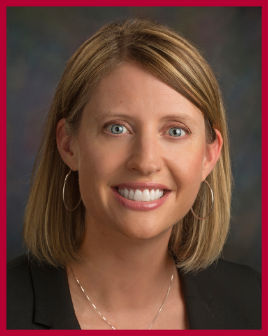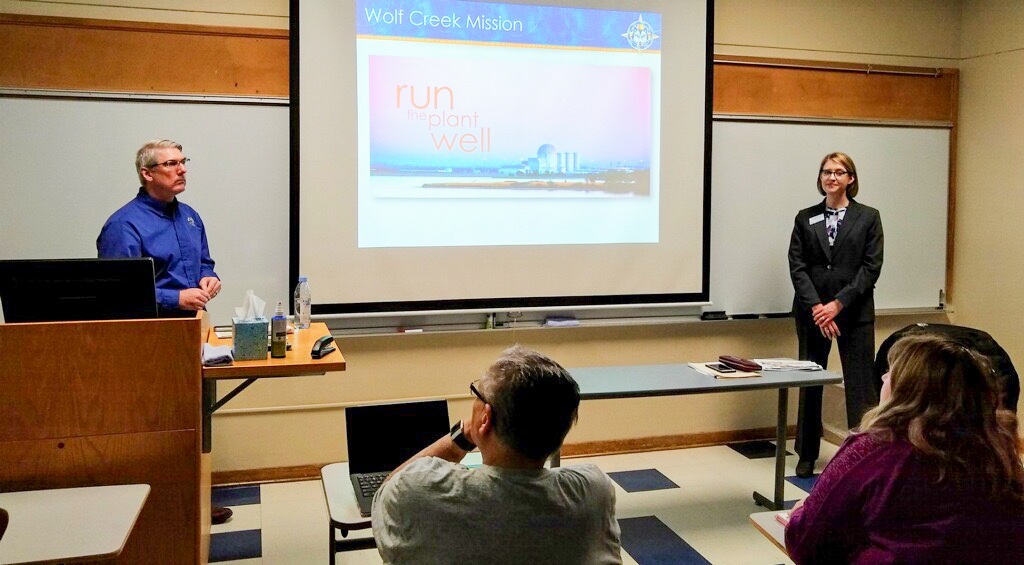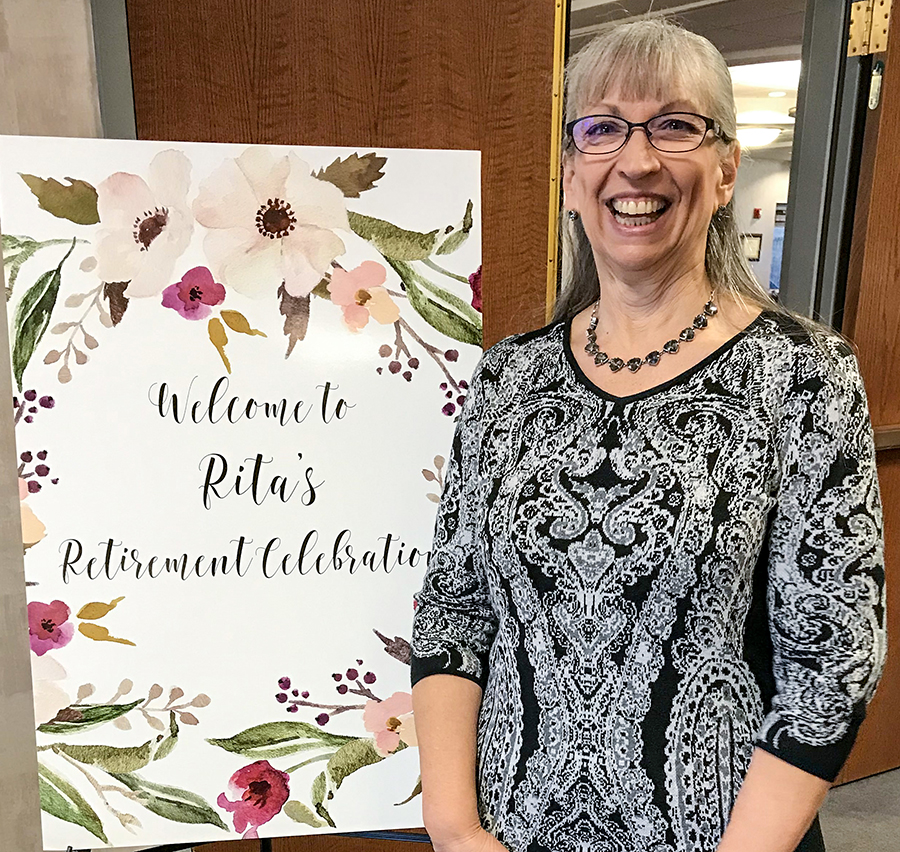A Moment with the CEO
BY SUZANNE LANE

Historic Changes Resulting from Demand-Side Management (DSM) Study
In response to the 2019 DSM study performed for KEPCo by GDS Associates, Inc., the KEPCo Board of Trustees has started 2020 by implementing several modifications to key governing documents. For the first time in almost 10 years, KEPCo’s Board voted in January 2020 to amend the Schedule M-11B tariff, which applies to all 18 of KEPCo’s member-owners. This amendment more accurately aligns the way in which KEPCo is billed by its power suppliers with the way KEPCo bills its members, thereby optimizing cost-savings strategies and goals. The revised tariff, Schedule M-11C, was approved by the Rural Utilities Service (RUS) on March 18, 2020, and will become effective June 1, 2020. In addition, the Board voted to amend Policy Bulletin No. 18, which describes all operational aspects of behind-the-meter distributed generation (DG). This modified policy also incorporates a new self-certification for members to ensure compliance with the Wholesale Power Contract Addendum No. 5 that was approved by RUS in 2018. These changes are just a few of many examples of KEPCo member-employee partnerships to assure we are providing our members with the most cost-effective, stable rates possible.
2020 Brings Many New Initiatives
In addition to personal resolutions, a new year brings new operational and business goals. 2020 has already started off with many new initiatives for KEPCo. All of KEPCo’s employees now have goals covering safety, cybersecurity, member experience, financial strength, regulatory compliance, risk management, and employee experience. Formal risk identification has started, and we will be utilizing the services provided by CFC later this year to lead us through a formal risk mapping and policy development process. We are also creating a formal compliance database, whereby all of KEPCo’s many compliance requirements are captured. Last but not least, we are partnering with our Board to create a new purpose statement and guiding principles to replace our mission and vision statements. Capturing critical focuses like safety, cybersecurity, innovation, member experience, and employee engagement, while also ensuring that our core mission to provide long-term, reliable, and economic power supply for our members is met, will continue to help assure our employees’ focus is aligned with our members’ needs.
KEPCo and Wolf Creek Leadership Speaks with Washburn University Students

Suzanne Lane (right), KEPCo EVP/CEO, and Cleve Reasoner, Wolf Creek Generating Station Chief Nuclear Officer/CEO, were invited to speak to Washburn University’s “Science and Technology for World Leaders” class.
Suzanne Lane is the Executive Vice President and Chief Executive Officer for the Kansas Electric Power Cooperative, Inc. (KEPCo).
Legislative Update
The first phase of the retail electric rate study, conducted by London Economics International (LEI), was published on the Kansas Corporation Commission’s (KCC) website on January 8, 2020. The Kansas legislature authorized the study by the passage of Substitute for Senate Bill No. 69 in the 2019 legislative session. The intent of the two-phase, 29-topic study is to examine current statutes and regulations and to provide information that may assist legislative and regulatory efforts in crafting energy policies that lead to regionally competitive electric rates while maintaining reliable electric service.
Topics examined in the first phase include rate-making principles, performance-based rates, integrated resource plans, renewable generation, the development of a state energy plan, energy efficiency, and securitization, to name a few.
Early in the session, LEI presented its results to the Senate and House utilities committees. Subsequent to the LEI presentations, Kansas utilities and several other interested stakeholder groups provided testimony to both committees on their respective opinions of the study.
The second phase of the study, to be completed by July 1, 2020, was awarded to AECOM via a Request for Proposal process. AECOM is a multinational engineering firm headquartered in Los Angeles, California. The topics in the second phase include the impact of transmission investment on rates, electric vehicles and charging stations, advanced energy solutions (e.g., micro grids, battery storage, distributed generation, transactive energy), economic development rates, and the impact to cooperatives and municipals from rising investor-owned utility rates, among others.
Due to COVID-19 concerns, the legislature adjourned early on Thursday, March 19, 2020, for an extended first adjournment break. Currently, lawmakers are slated to return on April 27, 2020, but that date is uncertain and will depend on the status of COVID-19 at that time. As the session wound to a hasty close, the legislators focused on such legislative priorities as the budget, the 10-year transportation plan, the governor’s emergency powers, and legislative changes needed to address the impact of COVID-19.
With the schedule to hear and work bills dramatically altered due to the early adjournment, and subsequent procedural maneuvering to move bills into conference committees, the following is a synopsis of the electric utility bills as they appeared at first adjournment.
- HB 2618 – The bill establishes a broadband grant program under the Department of Commerce to encourage the deployment of broadband within the state. The bill passed the full House on a vote of 120 to 5. The bill was amended by the Senate Utilities Committee to include a sunset provide, which will force the legislature to reevaluate and formally extend the program prior to 2025 when it is currently set to expire. The bill was passed as amended by the Senate.
- HB 2585 – The bill will allow a third-party to sell electricity from an electric vehicle charger without being considered a public utility and, therefore, outside the jurisdiction of the KCC. During the debate on the House floor, Rep. Finney (Wichita) offered an amendment pertaining to transmission siting requirements in urban areas. Per the amendment, transmission lines with a voltage of 69 kV or greater and ¼ mile or longer will be under the siting jurisdiction of the KCC. Four new approval determination criteria have been added to urban transmission lines – local aesthetics, location, environment, and population density. The amendment is in response to the large transmission poles that were placed in a neighborhood in Wichita. The bill passed the full House on a vote of 123 to 2. The electric utilities, working in unison, drafted an amendment to the bill, raising the transmission voltage from 69 kV to 115 kV, increasing the ¼ mile threshold to 2 ½ miles, and exempting private right-of-way, Southwest Power Pool Notice To Construct (NTC) projects, and restoration from natural disasters, as well as providing a more robust notification and public hearing process. In addition, the four new approval determination criteria were removed. Due to the anticipated early first adjournment of the legislature and the need to advance bills, HB 2585 was “gutted,” and the language of the bill was replaced with Sub. SB 126 and SB 339 (see descriptions below), since the House had not advanced either of those bills. The amended bill passed out of Senate Utilities unanimously.
- Sub. SB 126 – After amendment proffered by the rural electric cooperatives, the bill permanently exempts all electric public utilities from being subject to the state income tax. The bill also implements a mechanism for investor-owned utilities to follow in returning sales tax collected through electric rates to customers. The bill passed the full Senate on a vote of 40 to 0.
- SB 339 – The bill was introduced on behalf of Evergy and establishes a statutory framework for approving economic development electric rates. A technical fix accomplished earlier in the session ensures rural electric cooperatives are exempt from the bill and, thus, retain their rate self-regulation. SB 339 passed the full Senate on a vote of 39 to 0. The content of Sub. SB 126 was combined with SB 339 and both Senate bills now reside in HB 2585, which no longer includes any of the original language dealing with electricity sales to electric vehicles or the House floor verbiage related to transmission line siting.
- SB 380 – This bill restricts cities and counties from imposing certain regulations and fees on a video service provider delivering communications service through micro wireless facilities. The legislation, as was amended in the Senate Utilities Committee earlier this year, will ensure pole owners continue to have full capabilities to negotiate terms, fees, and conditions of pole attachment agreements. The contents of SB 380 have now been placed into Senate Sub. HB 2018.
- SB 198, SB 437, HB 2691 – Three bills regarding securitization and the implementation of the Kansas energy bill reduction assistance (K-EBRA) program have been introduced in the Kansas legislature during this biennium. Although the referenced bills differ in scope and content, each would give the KCC the authority to oversee and authorize the issuance of ratepayer-backed securitized bonds in order to finance the retirement of existing generating assets in the state, as well as any new generation facilities necessary to replace the lost capacity and energy from the retired generation facility. While none of these bills passed this or last session, they reflect a legislative priority to consider avenues for reducing energy bills in Kansas.
- HB 2745 – Introduced in the last days of the legislative session, HB 2745 directs the KCC to develop a statewide energy plan before July 1, 2022, with an interim report to the legislature due during the 2021 legislative session. The bill was introduced in the House Committee on Federal and State Affairs making it exempt from legislative deadlines for the duration of the 2020 legislative session.
In addition to the myriad of House and Senate bills introduced this session, Governor Kelly introduced Executive Reorganization Order (ERO) 46 that would move the State Energy Office from the KCC to a stand-alone agency under the direct jurisdiction of the governor. An ERO is different than a bill in that it can be approved or disapproved by only one body of the legislature, or if no action is taken within 60 days of issuance by either chamber, the ERO becomes law. Early in the session, the House Utilities Committee passed House Resolution 6031 to not approve the ERO and the full House followed suit in their vote, thus ending the Governor’s attempt to move the Energy Office this year.
Safety is Our Top Priority
A new, standing article for each issue of the Newsmaker will be devoted to safety topics. Whether at home, at the office, or on a job site, safety should always be a top priority. At KEPCo, we demonstrate our commitment to providing a safe workplace in many ways; one example is the establishment of the KEPCo Safety Committee and resulting enhancements to safety education and training for staff. We hope these articles, found under Generating Safety, provide valuable information to keep all of our readers safe.
Generating Safety
BY RICK JOHNSON

How does one generate safety? Hire an outside entity with dynamic speakers, all the latest training aides, and state-of-the-art media? Develop safety metrics and recognize/reward employees for achieving goals and working safely? Develop a comprehensive safety manual that all employees must read and acknowledge compliance? Having the leadership team exemplify safety?
Culture shift takes time and requires concerted effort. Therefore, making safety a top priority must be a shared responsibility among all employees throughout an organization. Ultimately, achieving a shared attitude of safety will make for a safer place to work and, subsequently, a better place to work!
Rita Petty Retires

Rita Petty, KEPCo Executive Assistant and Office Manager, retired earlier this year after a successful, 15-year career with KEPCo.
Rita Petty, KEPCo Executive Assistant and Office Manager, retired earlier this year after a successful, 15-year career with KEPCo. Rita was paramount to KEPCo’s numerous accomplishments during her tenure. She developed a strong bond with not only our staff, but with the Board of Trustees as well. To celebrate Rita, a video montage of current and former staff members, Board members, and friends was presented to Rita, as well as gifts, treats and a celebration reception.
On behalf of the KEPCo Board of Trustees and KEPCo staff, we wish Rita a long, happy, and healthy retirement!
Employees on the Move

Kelsey Schrempp

Missy Tew

Lauren Lynch
Lauren is from Topeka and graduated from Seaman High School. She is currently attending Baker University, studying business management with an emphasis in human resources. Lauren was previously employed at Lawrence Memorial Hospital, where she worked in human resources and facilities management.
Lauren has a son, Jayce (7), and in her spare time enjoys attending Jayce’s wrestling matches and participating in fitness activities.
New Website Launches

KEPCo is proud to announce the launch of its newly upgraded and redesigned website at www.kepco.org. The new site features a streamlined, modern design, improved functionality, and easy-to-access information for both our members and their electric cooperative members, our employees, our industry partners, and the public generally. In addition to upgrading the website to a newer platform, our goal during the redesign process was to create a more valuable, updated, user-centric resource and to make it easy for users to learn and locate information about KEPCo and its operations.
Salina Office Moves

The KEPCo Salina office has moved to a new location at 2525 S. Ohio Street. The previous location had structural issues, such as a leaking roof, and the space was not adequate to meet KEPCo’s current and future operational needs. The new office is larger and was remodeled to fit KEPCo staff’s requirements. This office not only houses two of our Meter/SCADA technical staff, but also is home to some of our essential, back-up IT equipment.
